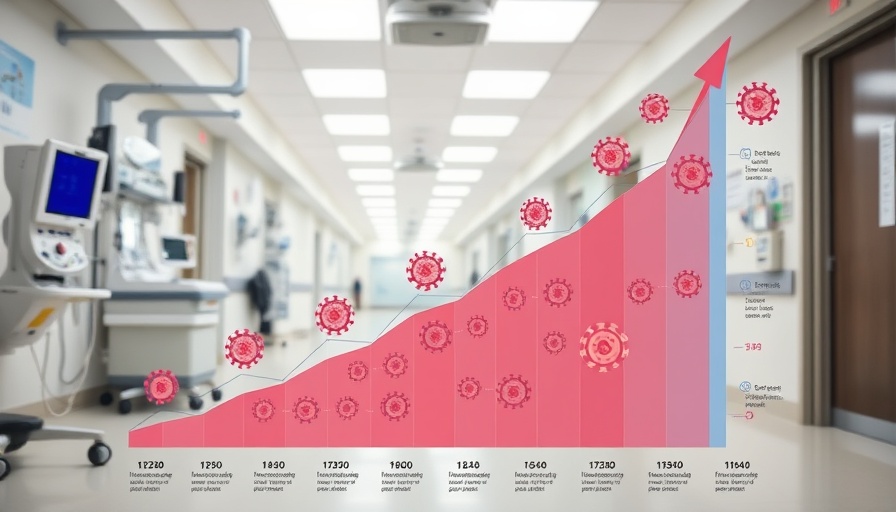
The Resurgence of Measles in the United States
Measles was once considered a disease of the past in the U.S., effectively managed through widespread vaccination programs. Yet recent data reveals a remarkable surge in cases, raising serious public health concerns. This increase coincides with an alarming decline in vaccination rates attributed largely to misinformation circulating through social media and other platforms.
Understanding the Vaccine Decline
Data shows that vaccination rates against measles have dropped significantly in recent years. The CDC reports that as of 2021, only about 84% of children receive their first dose of the measles vaccine by age two, a major decline from previous years. This trend is not simply the result of hesitance but also fueled by a growing anti-vaccine movement that uses social media to spread false information. Unfounded fears about vaccine safety have led many parents to forgo vaccinations for their children, creating pockets of unvaccinated individuals within communities.
The Role of Misinformation
One of the primary drivers of vaccine hesitancy is the misinformation about vaccines circulating online. Social media platforms have become breeding grounds for myths surrounding vaccine efficacy and safety. The World Health Organization has classified vaccine hesitancy as one of the top ten threats to global health, warning that false information poses significant risks to herd immunity and public health at large. Understanding and countering these myths is essential to reversing the decline in vaccination rates.
Community Impact and Social Responsibility
Every individual who chooses not to vaccinate places their community at risk. Vaccination not only protects individuals from preventable diseases but also contributes to herd immunity, which safeguards those who cannot be vaccinated due to medical reasons. Local health departments emphasize the importance of community-wide immunization strategies. Engaging in public health campaigns that educate and inform citizens can foster a more informed population and reverse the current downward trend in vaccination.
Future Predictions and Insights
If the trend continues, experts predict that we may see a significant rise in measles outbreaks, particularly in communities with low vaccination rates. This resurgence could strain healthcare systems already managing other health issues, including COVID-19. Predictive analytics suggest that as more families delay vaccinations, we may see a resurgence similar to what was experienced in the late 2010s when the U.S. saw the highest number of cases in 25 years.
What Can Be Done?
To combat misinformation and boost vaccination rates, a multi-faceted approach is required. This includes educational initiatives aimed at dispelling myths about vaccines, as well as strengthening community outreach to inform parents and caregivers about the importance of vaccination. Social media platforms must also take responsibility by creating policies that limit the spread of false information about vaccines, directing parents to credible sources of information.
Conclusion: The Call to Action
In light of the alarming rise in measles cases linked to vaccine hesitancy, it’s crucial for individuals to educate themselves about the importance of vaccinations. Understanding the facts, communicating with healthcare professionals, and participating in local vaccination campaigns can help protect not only oneself but also the larger community. Health officials urge everyone to stay informed and combat misinformation for the sake of public health.
 Add Element
Add Element  Add Row
Add Row 



Write A Comment